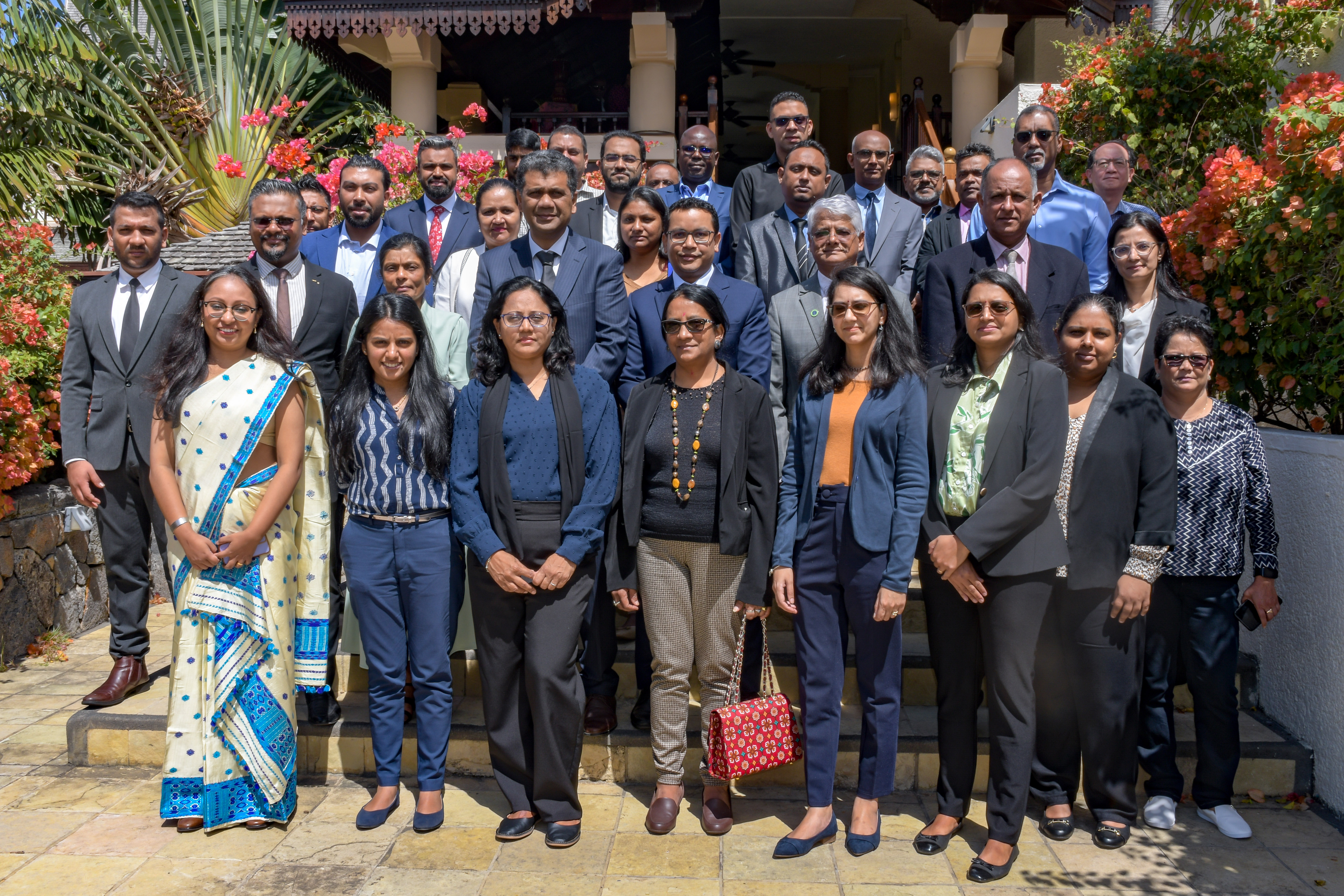This training is part of the Capacity Building Initiative for Transparency (CBIT) project
UNDP Facilitates a Capacity Building Workshop on GHG Measurement Techniques for the Energy Sector
October 1, 2024

This comprehensive training is designed to enhance participants' understanding and application of greenhouse gas measurement techniques within the energy sector, equipping them with the necessary tools to support climate change mitigation initiatives in the Republic of Mauritius.
The United Nations Development Programme (UNDP) is facilitating a capacity-building workshop on greenhouse gas (GHG) measurement techniques specifically for the energy sector. This three-day workshop, which commenced on September 30 2024 in Flic-en-Flac, emphasizes Intergovernmental Panel on Climate Change (IPCC) methodologies, particularly focusing on Stationary Combustion, including thermal power stations. Organized in collaboration with the Ministry of Environment, Solid Waste Management, and Climate Change, the workshop forms part of the Capacity Building Initiative for Transparency (CBIT) project, aimed at enhancing Mauritius' National Greenhouse Gas Inventory.
As a signatory of the Paris Agreement, the Republic of Mauritius has committed to contributing to global climate action by reducing its greenhouse gas emissions in line with the goal of limiting global temperature rise to 1.5°C above pre-industrial levels. In support of these efforts, the Capacity Building Initiative for Transparency (CBIT) project, funded by the Global Environment Facility (GEF), has been designed to strengthen the country’s climate action. This project aims to enhance the government's capabilities in the collection, storage, and dissemination of data related to greenhouse gas emissions, ensuring more accurate monitoring and reporting, which is critical for meeting both national targets and international obligations under the Paris Agreement. This initiative not only enhances transparency and reporting but also provides a robust foundation for evidence-based policymaking.
Under the project's outputs 1 and 2, experts from Grant Thornton Advisory Services Mauritius and the University of Mauritius have developed advanced methodologies (Tier 3) for calculating emissions from thermal power plants and real-time emissions applicable to the energy and transport sectors. This workshop, which follows a previous working session held in July 2024, aims to familiarize key stakeholders with the 2006 IPCC’s methodologies for calculating GHG emissions and offers guidance on evaluating mitigation efforts, specifically addressing uncertainties in the energy sector.
Mauritius is committed to addressing climate change, despite its minimal contribution to global GHG emissions
During the event, Mr. Fabiani Appavoo, UNDP Mauritius and Seychelles Assistant Resident Representative, highlighted the importance of the CBIT project in enhancing Mauritius' GHG inventory in line with Article 13 of the Paris Agreement. He noted the workshop's relevance as COP29 approaches, where the financial commitments of signatory countries will be scrutinized through the global transparency platform. Mr. Appavoo commended Mauritius for its commitment to addressing climate change, despite its minimal contribution to global GHG emissions, and reaffirmed UNDP’s ongoing support for advancing climate action in the country.
The Honourable Kavydass Ramano, Minister of the Environment, Solid Waste Management, and Climate Change, acknowledged UNDP's substantial technical support for the project. He emphasized that the GEF-funded CBIT project will improve the quality of the National GHG Inventory and contribute to greater transparency in Mauritius’ reporting obligations, particularly regarding its Nationally Determined Contributions (NDCs). Minister Ramano encouraged local energy sector experts to leverage the current capacity-building sessions and take greater ownership of the National GHG Inventory, stressing the significance of 2024 as Mauritius prepares its first Biennial Transparency Report (BTR), a crucial reporting instrument under the Enhanced Transparency Framework.
Facilitated by experts from Grant Thornton International and Dr. Oree from the University of Mauritius, this workshop will cover essential topics from 2006 IPCC methodology Volume 1. Participants will delve into data collection and uncertainty analysis, quantification methods, and the integration of uncertainties. The program will also address methodological choices for key categories, ensure time series consistency, resolve data gaps, and implement effective quality assurance and quality control measures. This comprehensive training is designed to enhance participants' understanding and application of greenhouse gas measurement techniques within the energy sector, equipping them with the necessary tools to support climate change mitigation initiatives in the Republic of Mauritius.

 Locations
Locations







